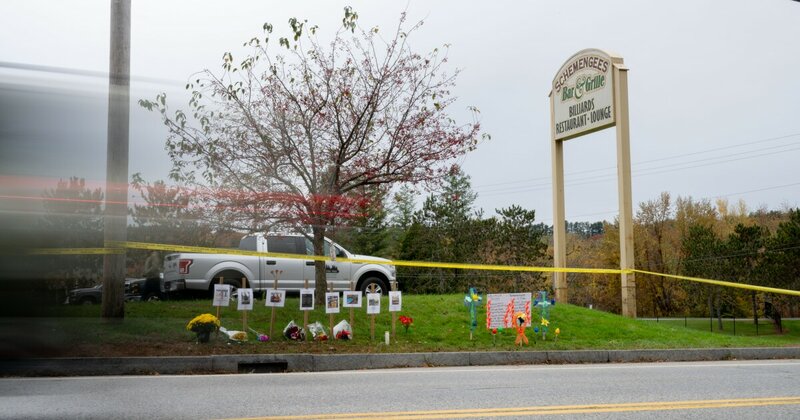Posted on Oct 31, 2023
Documents show Lewiston mass shooting suspect had been on law enforcement's radar for months
1.4K
12
3
6
6
0
Posted 1 y ago
Responses: 2
MSG Thomas Currie
The question has to be what do we want the government to do and when.
Hindsight is always 20/20. In this, and the overwhelming majority of such tragedies, it is easy to look back and say "They should have seen this coming!" Of course it is always "They" who should have seen it coming -- because THEY are always the ones who should have "done something."
In this case, it does seem that the local police perhaps should have done more -- but exactly what? Should they have sent a SWAT team to break down his door and throw him in jail... without charges? Exactly what was the basis for police to take extreme action against a man who had not committed any crime? His unit and his family told police they were concerned -- but no one took our a mental inquest warrant to have him examined and committed. His family assured police they were taking his firearms (obviously they didn't take all of them).
Card had been in a mental hospital in New York earlier, but he had been released. The reports aren't clear but it is likely that his stay in the mental hospital in NY was voluntary because there is no mention of him ever being committed by a court. Whether the stay was voluntary or not is a question because other reports mention that Card had attempted to purchase a suppressor and had been denied because he checked the box about having been in a mental institution on the ATF form 4473. He may have checked that box incorrectly because the instructions specify that "The term does not include a person in a mental institution for observation or a voluntary admission to a mental institution." No background check was actually performed because he was disqualified based on having checked the box on the form.
If he actually had been committed to the mental hospital by a court, then he would have been a "Prohibited Person" which would have given authorities grounds to remove any firearms in his possession (it would have also made discharge mandatory from the military).
Overall, this tragedy is probably one where hindsight is very clear -- but there was still no basis for extreme action before hand. I'm sure this will fuel more demands for new laws that would be even more vague and allow police to shoot anyone that someone suspects might do something someday, but we need to ask ourselves is that really the country we want to be. If so, then George Orwell was only off by 40 years when he titled his book 1984.
Hindsight is always 20/20. In this, and the overwhelming majority of such tragedies, it is easy to look back and say "They should have seen this coming!" Of course it is always "They" who should have seen it coming -- because THEY are always the ones who should have "done something."
In this case, it does seem that the local police perhaps should have done more -- but exactly what? Should they have sent a SWAT team to break down his door and throw him in jail... without charges? Exactly what was the basis for police to take extreme action against a man who had not committed any crime? His unit and his family told police they were concerned -- but no one took our a mental inquest warrant to have him examined and committed. His family assured police they were taking his firearms (obviously they didn't take all of them).
Card had been in a mental hospital in New York earlier, but he had been released. The reports aren't clear but it is likely that his stay in the mental hospital in NY was voluntary because there is no mention of him ever being committed by a court. Whether the stay was voluntary or not is a question because other reports mention that Card had attempted to purchase a suppressor and had been denied because he checked the box about having been in a mental institution on the ATF form 4473. He may have checked that box incorrectly because the instructions specify that "The term does not include a person in a mental institution for observation or a voluntary admission to a mental institution." No background check was actually performed because he was disqualified based on having checked the box on the form.
If he actually had been committed to the mental hospital by a court, then he would have been a "Prohibited Person" which would have given authorities grounds to remove any firearms in his possession (it would have also made discharge mandatory from the military).
Overall, this tragedy is probably one where hindsight is very clear -- but there was still no basis for extreme action before hand. I'm sure this will fuel more demands for new laws that would be even more vague and allow police to shoot anyone that someone suspects might do something someday, but we need to ask ourselves is that really the country we want to be. If so, then George Orwell was only off by 40 years when he titled his book 1984.
(0)
(0)
Read This Next



 Firearms and Guns
Firearms and Guns Violence
Violence Lewiston
Lewiston Mental Health
Mental Health Law Enforcement
Law Enforcement



